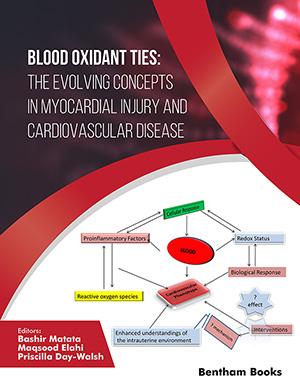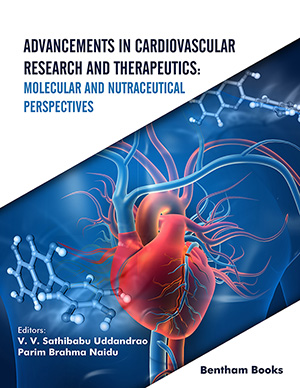
Abstract
Children and adults with congenital heart disease (CHD) can require interventions that result in immunologic alterations that are different than those seen in patients with cardiomyopathies. Patients with CHD can be exposed to heart surgeries, blood products, valved and non-valved allograft tissue, and mechanical circulatory support, all of which can alter the immunologic status of these patients. This change in immunologic status is most commonly manifested as the development of anti-human leukocyte antigen (HLA) antibodies. This review will delineate a) the causes of anti-HLA antibody production (often referred to as allosensitization); b) preventive strategies for anti-HLA antibody production before transplantation; c) treatment strategies for those patients who develop anti-HLA antibodies before transplantation; d) consequences of HLA allosensitization after transplantation; and e) treatment of HLA allosensitization and antibody-mediated rejection after transplantation.
Keywords: Heart transplantation, allosensitization, rejection, pediatric, therapy, management, ANTI-HLA ANTIBODY, PREVENTIVE STRATEGIES, anti-HLA, irradiation, cardiopulmonary bypass, immune response
Current Cardiology Reviews
Title: Immunologic Considerations in Heart Transplantation for Congenital Heart Disease
Volume: 7 Issue: 2
Author(s): Beth D. Kaufman and Robert E. Shaddy
Affiliation:
Keywords: Heart transplantation, allosensitization, rejection, pediatric, therapy, management, ANTI-HLA ANTIBODY, PREVENTIVE STRATEGIES, anti-HLA, irradiation, cardiopulmonary bypass, immune response
Abstract: Children and adults with congenital heart disease (CHD) can require interventions that result in immunologic alterations that are different than those seen in patients with cardiomyopathies. Patients with CHD can be exposed to heart surgeries, blood products, valved and non-valved allograft tissue, and mechanical circulatory support, all of which can alter the immunologic status of these patients. This change in immunologic status is most commonly manifested as the development of anti-human leukocyte antigen (HLA) antibodies. This review will delineate a) the causes of anti-HLA antibody production (often referred to as allosensitization); b) preventive strategies for anti-HLA antibody production before transplantation; c) treatment strategies for those patients who develop anti-HLA antibodies before transplantation; d) consequences of HLA allosensitization after transplantation; and e) treatment of HLA allosensitization and antibody-mediated rejection after transplantation.
Export Options
About this article
Cite this article as:
D. Kaufman Beth and E. Shaddy Robert, Immunologic Considerations in Heart Transplantation for Congenital Heart Disease, Current Cardiology Reviews 2011; 7 (2) . https://dx.doi.org/10.2174/157340311797484204
| DOI https://dx.doi.org/10.2174/157340311797484204 |
Print ISSN 1573-403X |
| Publisher Name Bentham Science Publisher |
Online ISSN 1875-6557 |
Call for Papers in Thematic Issues
Advances in Managing Cardiogenic Shock and the Value of Percutaneous Mechanical Circulatory Support.
Despite the advances in cardiology, the outcomes of patients with cardiogenic shock remain poor. There is an increasing interest and use of mechanical circulatory support for patients with cardiogenic shock. Additionally, the complexity of coronary interventions has increased during the last decade with the potential of treating more high-risk patients ...read more
Chronic Disease Self-Management for Heart Failure – A Mini review into Performance Gaps
Chronic disease self-management (CDSM)is a vital component of chronic disease management. There remain several important deficits in this concept. Its benefit are clear, many chronic diseases such as hypertension, diabetes, asthma, rheumatology syndromes have shown benefit in quality of life and quantitative measures of outcomes. Yet, in congestive heart failure ...read more
The era of cardiac medication and implantable devices therapy in heart failure treatment continues
The heart failure (HF) remains a serious public health problem and affects 64 million people worldwide. Although advances in medical therapy and device assistance have significantly improved HF outcomes, the implications of HF are still dramatic. In recent years, innovative developments have been made in HF treatment management, based on ...read more
Related Journals
 13
13
- Author Guidelines
- Graphical Abstracts
- Fabricating and Stating False Information
- Research Misconduct
- Post Publication Discussions and Corrections
- Publishing Ethics and Rectitude
- Increase Visibility of Your Article
- Archiving Policies
- Peer Review Workflow
- Order Your Article Before Print
- Promote Your Article
- Manuscript Transfer Facility
- Editorial Policies
- Allegations from Whistleblowers
- Announcements
Related Articles
-
Mitochondrial Complex I Deficiency in Humans
Current Genomics Revised Genetic Classification of Limb Girdle Muscular Dystrophies
Current Molecular Medicine Natural Bioactive as a Potential Therapeutic Approach for the Management of Cyclophosphamide-induced Cardiotoxicity
Current Topics in Medicinal Chemistry A Critical and Comprehensive Insight on Heme Oxygenase and Related Products Including Carbon Monoxide, Bilirubin, Biliverdin and Ferritin in Type-1 and Type-2 Diabetes
Current Pharmaceutical Design Is a "Mitochondrial Psychiatry" in the Future? A Review
Current Psychiatry Reviews Role of GSK-3 in Cardiac Health: Focusing on Cardiac Remodeling and Heart Failure
Current Drug Targets Therapeutic Interventions for Advanced Glycation-End Products and its Receptor- Mediated Cardiovascular Disease
Current Pharmaceutical Design MicroRNAs Targeting Critical Molecular Pathways in Diabetic Cardiomyopathy Emerging Valuable for Therapy
Cardiovascular & Hematological Agents in Medicinal Chemistry In Vivo Imaging of Apoptosis in Cancer: Potentials and Drawbacks of Molecular Probes
Current Molecular Imaging (Discontinued) Stiff Left Atrial Syndrome; Prospects and Possibilities. Retrospective Analysis and Review of the Literature
Current Hypertension Reviews Rheumatoid Arthritis: Cardiovascular Manifestations, Pathogenesis, and Therapy
Current Pharmaceutical Design Triiodothyronine (T3) Effects on Cardiovascular System in Patients with Heart Failure
Recent Patents on Cardiovascular Drug Discovery Meloxicam Prevents Load-Induced Cardiac Hypertrophy in Mice
Immunology, Endocrine & Metabolic Agents in Medicinal Chemistry (Discontinued) Expression and Functions of Heat Shock Proteins in the Normal and Pathological Mammalian Eye
Current Molecular Medicine Endothelial Dysfunction: Methods of Assessment and Application to Hypertension
Current Pharmaceutical Design Endothelin-1 and Endothelin Converting Enzyme-1 in Human Atherosclerosis - Novel Targets for Pharmacotherapy in Atherosclerosis
Current Vascular Pharmacology Mitochondrial Disorders in Adults
Current Molecular Medicine FGF23 Actions in CKD-MBD and other Organs During CKD
Current Medicinal Chemistry Hyperglycemia-induced Oxidative Stress and its Role in Diabetes Mellitus Related Cardiovascular Diseases
Current Pharmaceutical Design Methods for Identifying Cardiovascular Agents: A Review
Recent Patents on Cardiovascular Drug Discovery
















